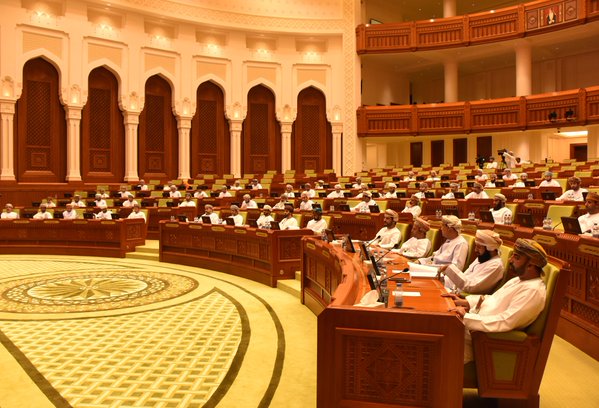
Muscat: Majlis Al Shura has approved an in-house report calling for an increase in the number of nationals in managerial positions in the private sector.
Get your essential daily briefing delivered direct to your email inbox with our e-newsletter
The report states that 40 per cent of all senior posts should be filled by locals over the next five years, a top Shura member told the Times of Oman. (TOO)
“It’s been approved. Now these recommendations will go to the Council of Ministers directly,” Shura member Mohammad bin Salim Al Busaidi told TOO in an exclusive interview.
Read here: Majlis Al Shura discusses Omanisation in private sector supervisory positions
“We have suggested that in five years Omanis’ proportion at the managerial roles must reach 40 per cent. Every year, they (private companies) should make a plan to increase (this kind of employment for Omanis) by 5 per cent. After five years it shouldn’t be less than 40 per cent,” he said.
Al Busaidi heads the Youth and Human Resource Committee of the Shura which framed the recommendations in a four-month long, first-of-its-kind report accessed by TOO.
Times was the first to report about the meticulous study by the Shura committee on the Omanisation plan at the top level in the private sector.
Read also: Calls for more Omanis, not expats, to be bosses
“They (Council of Ministers) will study all the recommendations and implement whatever they agree with. They will then reply to the Shura Council over what recommendations they have approved or have a different idea for,” he said.
Asked if there was any opposition to the report, he said, “There was no opposition. In fact, some members wanted it to be more than 40 per cent. There were discussions and we all agreed that it has to be 40 per cent.”
Quoting figures from the Ministry of Manpower, he said currently 79 per cent expats are working at the managerial or decision-making positions in the private sector and only 21 per cent are Omanis.
“But this is not 100 per cent accurate, because some companies don’t go exactly according to the labour card. An employee could be a manger but his labour card doesn’t show that,” Al Busaidi said.
About degree holders working in private sector, he said there are 143,000 on leader and supervisory positions in the private sector and only 11.5 per cent are Omanis.
The Shura member said that in the next two years most of the Omanis will be graduating and every year there are about 44,000 Omani job seekers.
“Most of them will be graduates from universities and colleges. Now we are targeting the private sector to see where they could fit,” he added.
Some of the recommendations include:
Practical plans – Replace expats and put Omanis in management positions with an increase not less than 5% annually, which will achieve not less than 40% in five years.
Train Omanis –Open an academy which will prepare and train Omanis working in private sectors for supervisory positions.
National programmes -Introduce national programs that encourage replacement of expatriates to Omanis
Training within private companies - Large and medium private companies must train their Omani staff, and submit annual training plans to Ministry of Manpower for Accreditation
Legal protection - Offer legal protection to company owners for replacing an Omani with Omani incase his skills proven to be insufficient for the supervisory position. This is to balance the interests of employers and workers without hurting one side on account of the other.
Privileges to private companies – Grant facilities and privileges to private companies that offer supervisory positions to Omanis, for example, if the company hired and Omani in one supervisory position it will be equal to two lower-level job positions from the percentage of Ominisation required.
Diversify nationalities - Diversify nationalities of expats labour to avoid focusing on one nationality in supervisory and management jobs in private companies.